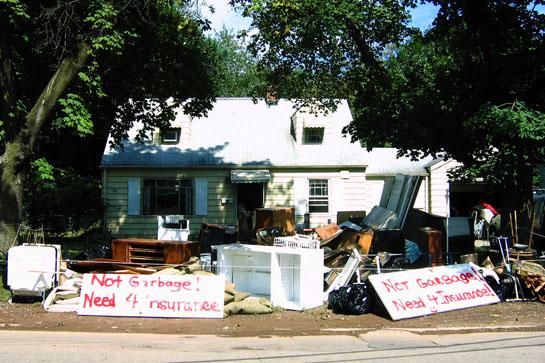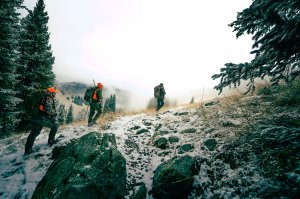CC image from Flickr
Ever wonder what it would take to start all over again? Not in a personal reinvention kind of way, but in the “start from scratch” kind of way. In the event of an emergency that would prompt an evacuation from your home, you’ll need a lot of paperwork to facilitate a reboot in a positive direction.
Here are 15 critical documents to securely store, should you ever have to grab them and go.
1. Driver’s License: This is easily the most durable document on the list. It’s also one of the most important ones. It provides proof of residency and that you are able to drive. You’ll have this one on your person, no doubt, along with your bank card and any credit cards you regularly use. Everything else on this list should be in a secure central location that’s easy to access in the event of a speedy evacuation.
2. Social Security Card: While most folks know their SSN by heart, your Social Security card can help establish your identity in a variety of situations.
3. Passport Booklet or Card: The newer Passport card (which looks very much like a driver’s license) or the classic Passport booklet are great proofs of identity, and they’ll allow you to get across borders, while most of your other vital documents won’t.
4. Bank Records: Bank contact info and your account and routing numbers can be very handy, should your checkbook and other banking items become lost or get destroyed.
5. Credit Card Records: Similar to the banking info, records of your credit cards and information to contact the companies can be a lifesaver, should the cards disappear from your possession.
6. Insurance Policy Records: That homeowner’s insurance policy may finally pay for itself, if you’ve got the papers to prove it. Grab your medical insurance paperwork and cards, too. Stash info on any other insurance that you may own, like renter’s insurance, auto insurance and, of course, life insurance. Keep papers on any work-related insurance, too.
7. Family Records: Store the “hard to replace” family documents with your other irreplaceable items: Birth certificates, marriage licenses, death certificates, and even the family tree. Zip drives full of family photos and videos should be part of this stuff, too.
8. Wills: Your copy of the will may be the only copy of that document. Should someone pass away as a result of the disaster or after it, you’ll need a legitimate will to sort out the hard details.
9. Living Wills and Medical Directives: Another grim subject, but a necessary one. Living wills and advanced medical/healthcare directives ensure that wishes are respected for those who aren’t able to make decisions for themselves.
10. Medical Records: Keep a set of records for each family member that includes information on drug allergies, severe food allergies, medical history, immunization records, and any other information of note.
11. Utility Bill: Though it may seem like an odd item, utility bills with your name and address can prove residency, which can be key to re-admittance to devastated communities.
12. Deeds and Titles: To prove you own a home, vehicle, or other large property, keep deeds, titles, and receipts to prove ownership. These can be a major part of an effective insurance claim.
13. Documents for Stocks, Bonds, and Other Investments: Again, keep track of possessions through proper bookkeeping.
14. Inventory of Valuables: Maintain a list that includes serial numbers of your valuables. Even better, keep a video or photographic record of the items and also save the receipts.
15. Contact Info for Family and Friends: If you are lucky enough to make it through a disaster in one piece, keep contact info on hand in order to get in touch with your worried friends and family.

